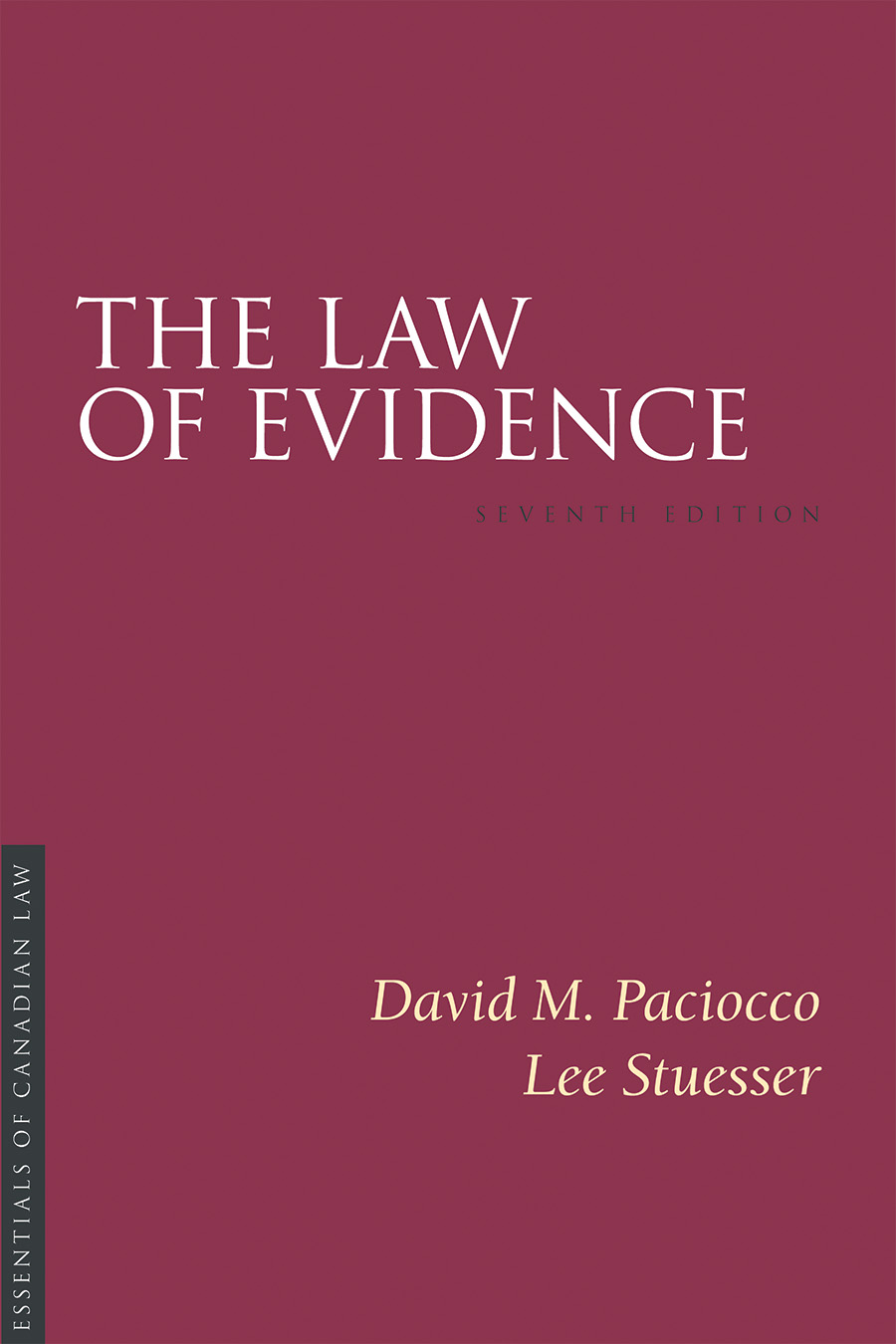
The Law of Evidence by David M. Paciocco and Lee Stuesser, is Canada’s leading text in evidentiary law in both criminal and civil cases. For nearly two decades, it has been relied upon by judges, practitioners, and scholars both in the courtroom and in the classroom.
In the newest edition of this frequently cited book, the authors continue their practice of organizing, explaining, and illustrating the law of evidence clearly, simply, and practically. The seventh edition provides authoritative analyses of new cases as well as a fresh or an expanded examination of the most important topics in evidentiary law, including:-